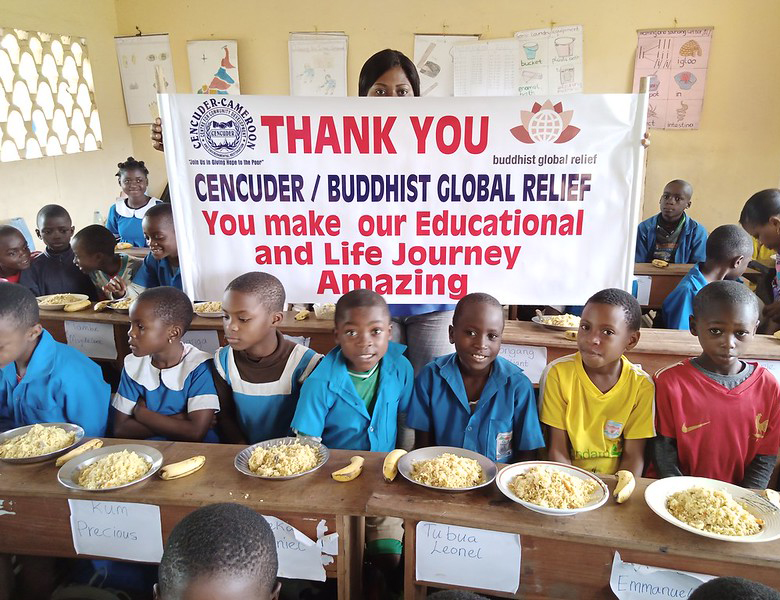
In the rural Ebase village in Southwest Cameroon, 99.7 percent of the population are poor peasant farmers earning less than $1 a day and lacking such basic needs as potable water, electricity, and health care. A lack of family resources means that education access is limited, particularly for female students. This project supports a school feeding program from long-time BGR partner CENCUDER. Based since 2015 in the local village school, the program is breaking cycles of poverty and illiteracy, both by reducing rates of hunger and malnutrition that affected children’s health and led to poor academic performance and also by keeping them in school. Our partner aims, through this program, to reduce the dropout rate from 8 percent to one percent by the end of 2024, with a particular focus on keeping village girls in school. The project provides a balanced hot school lunch to 145 children—for many, the only nutritious meal they receive each day.

In the rural Ebase village in Southwest Cameroon, 99.7 percent of the population are poor peasant farmers earning less than $1 a day and lacking such basic needs as potable water, electricity, and health care. A lack of family resources means that education access is limited, particularly for female students. This project supports a school feeding program from long-time BGR partner CENCUDER. Based since 2015 in the local village school, the program is breaking cycles of poverty and illiteracy, both by reducing rates of hunger and malnutrition that affected children’s health and led to poor academic performance and also by keeping them in school. Our partner aims, through this program, to reduce the dropout rate from 8 percent to one percent by the end of 2024, with a particular focus on keeping village girls in school. The project provides a balanced hot school lunch to 145 children—for many, the only nutritious meal they receive each day.




